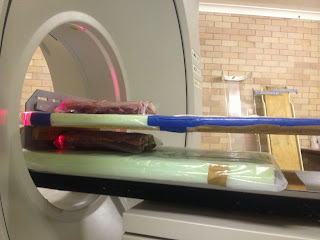The competition involved many aspects, including public speaking skills, personality and rural knowledge-anywhere from a local to a national and international level, after all, the aim of the competition being to find a rural female ambassador for NSW. There were many functions that we attended where we were able to meet many distinguished people who were involved in agriculture or involved with the Sydney Royal Show.
Overall, I had some fantastic experiences. However, one of the highlights for me was visiting the Westmead Children's Hospital to deliver showbags to the many children that weren't able to make it the Easter Show. This is where a fellow showgirl and myself were about to be shown how precious life and good health really was. We were in the oncology ward and were handing out showbags left right and centre, putting smiles on the children's dials. It was upon meeting a young boy, no more than three years old I'd say, that we felt so moved. We had a selection of showbags for the little boy to choose from who was suffering Leukaemia at the time. He got so excited he grabbed the Ben10 showbag off us and begged his mother to put his new Ben10 watch on his little wrist. His mum did so and then proceeded to ask him what the time was. "37.8" he said. For a moment there I was stunned wondering how this young child knew about decimals. It wasn't until a little while later that his mother explained to us that he has his temperature taken everyday and watches the nurse look at her watch and read out his temperature. This made me feel saddened that this disease was part of this little boy's life but in other respects made me so happy that I was able to bring a small bit of excitement to some very ill children. I think the showgirl visit to the hospital is very symbolic of the compassion and selflessness that is displayed by everyday people in rural Australia in times when support is needed.
There was so much fun had in the week that I spent with my fellow showgirl finalists at the show. We went to The Land at Camden and saw how the newspaper is produced. We also learnt about the history of agriculture in Camden as well as visited the Elizabeth Macarthur Agricultural Institute which was very interesting. There were many functions at the show that allowed us the opportunity to meet some very well respected people.
 |
| The showgirls had the opportunity to go behind the scenes of the district exhibits. The work that goes into these exhibits is incredible! |
I would strongly recommend this competition for young women that are passionate about agriculture. It really motivates you and inspires you to work hard to better the industry of which there are so many people that are so proud of it! I know I had the best experience and I want more young women to be able to share the same experience that I had.










